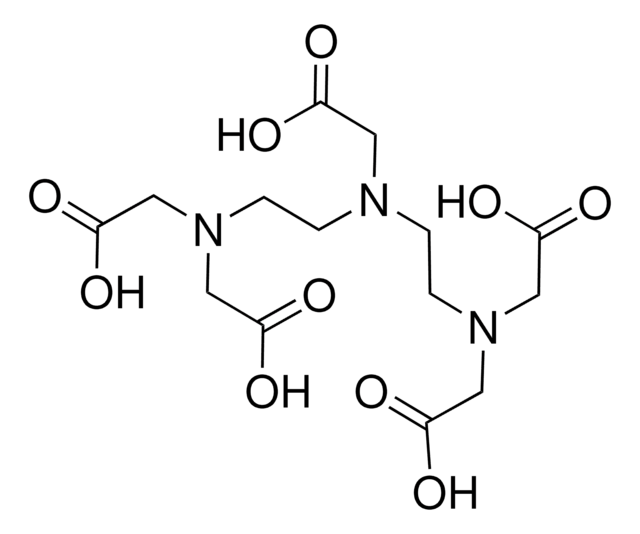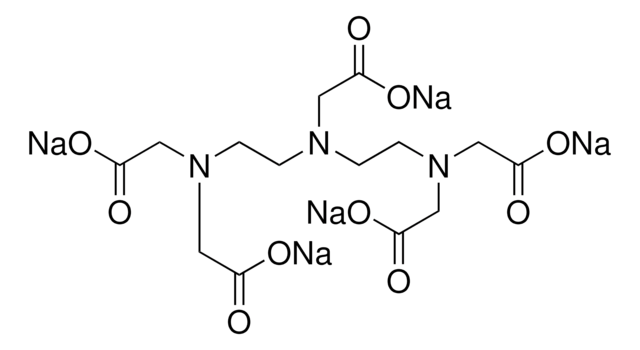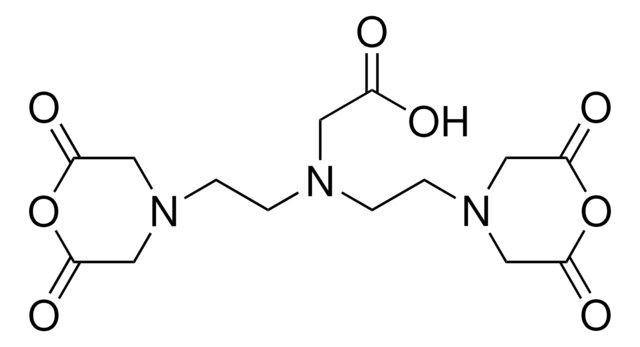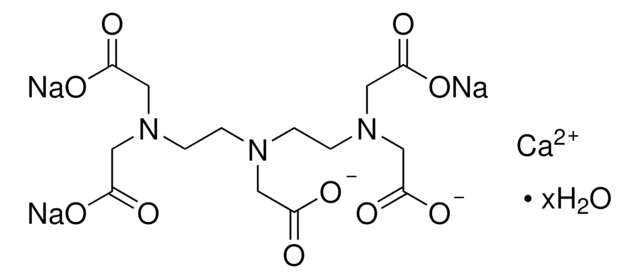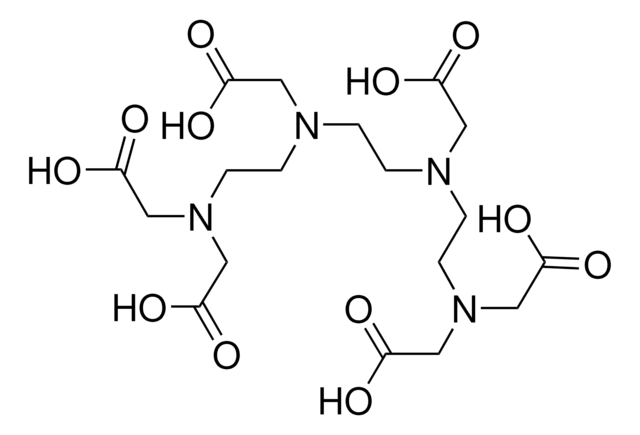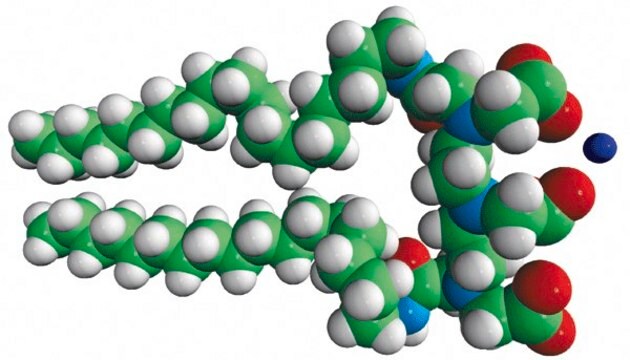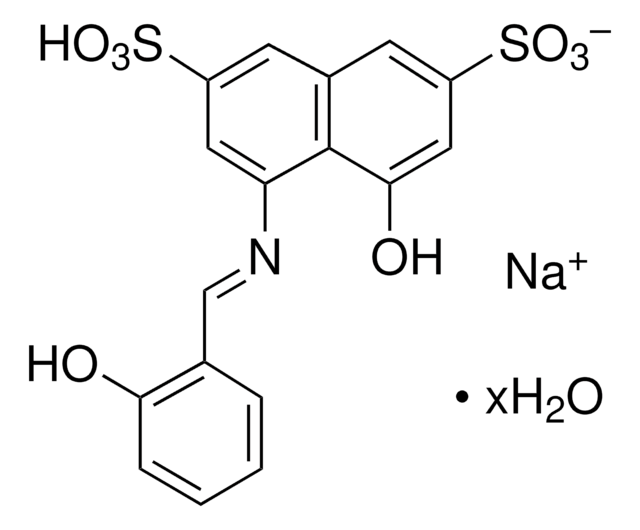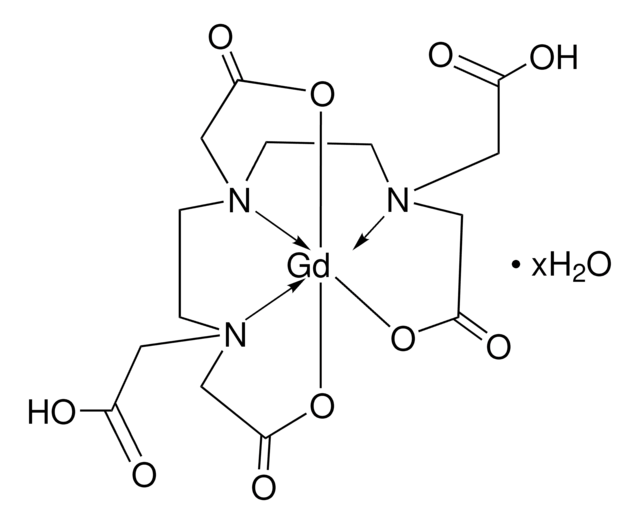D1133
Diethylenetriaminepentaacetic acid
≥98% (titration)
Synonym(s):
(Carboxymethylimino)bis(ethylenenitrilo)tetraacetic acid, N,N-Bis(2-[bis(carboxymethyl)amino]ethyl)glycine, DETAPAC, DTPA, Penta(carboxymethyl)diethylenetriamine, Pentetic acid
About This Item
Recommended Products
biological source
synthetic (organic)
Quality Level
Assay
≥98% (titration)
form
powder
mp
219-220 °C (lit.)
solubility
1 M HCl: 50 mg/mL, clear, colorless
storage temp.
room temp
SMILES string
OC(=O)CN(CCN(CC(O)=O)CC(O)=O)CCN(CC(O)=O)CC(O)=O
InChI
1S/C14H23N3O10/c18-10(19)5-15(1-3-16(6-11(20)21)7-12(22)23)2-4-17(8-13(24)25)9-14(26)27/h1-9H2,(H,18,19)(H,20,21)(H,22,23)(H,24,25)(H,26,27)
InChI key
QPCDCPDFJACHGM-UHFFFAOYSA-N
Looking for similar products? Visit Product Comparison Guide
Application
Signal Word
Danger
Hazard Statements
Precautionary Statements
Hazard Classifications
Acute Tox. 4 Inhalation - Eye Irrit. 2 - Repr. 1B - STOT RE 2 Inhalation
Target Organs
Respiratory Tract
Storage Class Code
6.1C - Combustible acute toxic Cat.3 / toxic compounds or compounds which causing chronic effects
WGK
WGK 2
Flash Point(F)
392.0 °F - closed cup
Flash Point(C)
200 °C - closed cup
Choose from one of the most recent versions:
Already Own This Product?
Find documentation for the products that you have recently purchased in the Document Library.
Customers Also Viewed
Our team of scientists has experience in all areas of research including Life Science, Material Science, Chemical Synthesis, Chromatography, Analytical and many others.
Contact Technical Service